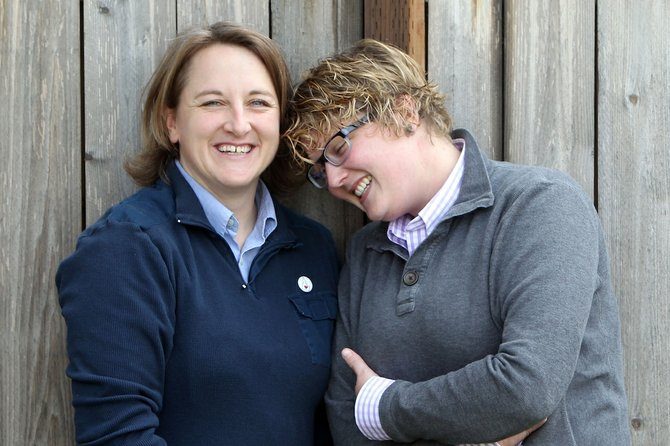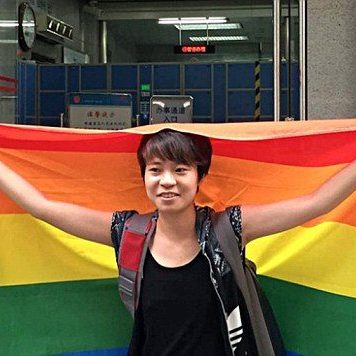 In Idaho, four lesbian couples in landmark cases.
In Idaho, four lesbian couples in landmark cases.
On October 7 in a decision authored by Judge Reinhardt, who was joined by Judge Gould and Judge Berzon, the Ninth Circuit Court of Appeals found that Idaho and Nevada’s marriage bans violate the 14th Amendment to the U.S. Constitution on the basis of equal protection.
Judge Reinhardt wrote, “Plaintiffs are ordinary Idahoans and Nevadans. One teaches deaf children. Another is a warehouse manager. A third is a historian. Most are parents.
Like all human beings, their lives are given greater meaning by their intimate, loving, committed relationships with their partners and children.”
Today’s decision, written by Judge Reinhardt, holds that “Idaho and Nevada’s marriage laws, by preventing same-sex couples from marrying and refusing to recognize same-sex marriages celebrated elsewhere, impose profound legal, financial, social and psychic harms on numerous citizens of those states.”
The decision further states: “Classifying some families, and especially their children, as of lesser value should be repugnant to all those in this nation who profess to believe in ‘family values.’
In any event, Idaho and Nevada’s asserted preference for opposite-sex parents does not, under heightened scrutiny, come close to justifying unequal treatment on the basis of sexual orientation.”
The Idaho case was brought in November 2013 by four lesbian couples: Sue Latta and Traci Ehlers, Lori and ShareneWatsen, Shelia Robertson and Andrea Altmayer, and Amber Beierle and Rachael Robertson. The couples are represented by Idaho attorneys Deborah Ferguson and Craig Durham of Ferguson Durham LLP and the National Center for Lesbian Rights (NCLR).
“At the end of the day, it shouldn’t matter what state you call home,” said Human Rights Campaign (HRC) Legal Director Sarah Warbelow.
“All Americans deserve the right to marry the person they love. Today’s ruling in the Ninth Circuit affirms that the U.S. Constitution doesn’t allow for states to pick and choose which of its citizens are entitled to certain rights, and which are not.”
The defendants in Idaho now have the option to request an appeal before the full bench of the Ninth Circuit, which decides whether or not to grant that request. They may also bypass an en banc session and appeal directly to the Supreme Court.
Marriage equality will soon become law in Nevada, as the proponents of the ban do not have the standing to appeal today’s ruling to the Supreme Court and the governor and attorney general of that state have withdrawn their opposition to the challenge.
On October 6 the nine justices of the Supreme Court declined to hear any of the cases pending before them challenging state bans on marriage for same-sex couples. This allowed the circuit court decisions to strike down the bans to stand, meaning same-sex couples in Utah, Oklahoma, Virginia, Wisconsin, and Indiana can legally marry.
It also leaves in place the circuit court rulings from the Fourth, Seventh and Tenth Circuits, meaning couples in West Virginia, North Carolina, South Carolina, Kansas and Wyoming will soon be able to marry as well. However, Montana, Alaska and Arizona—states that fall within the Ninth Circuit’s jurisdiction and have marriage bans in place—are not immediately affected by today’s ruling.
Attorney Deborah Ferguson told the NCLR: “The Court’s ruling is a victory not only for the courageous couples who brought this case but for our entire state and every state in the Ninth Circuit. The decision affirms the fundamental principles of equality and fairness for gay and lesbian couples.
As the Court recognized, these families are part of Idaho’s community, and our Constitution requires that they be given the same legal protections and respect as other families.” Lori Watsen added: “It means so much for the courts to recognize our family and say that we must be treated equally.
Our son will be able to grow up in a world where the state treats his family the same as other families. Today’s ruling means that we can finally have the same legal protections as other married couples and the security of knowing that our family is legally secure.”



